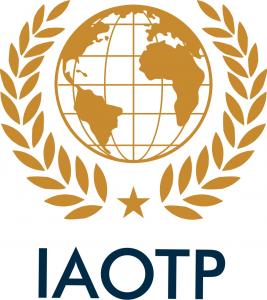LOS ANGELES, CA, UNITED STATES, July 20, 2023/EINPresswire.com/ — During times of change, especially when the change is threatening, leaders are advised to prioritize flexibility and problem-solving. However, research has shown that CEOs often fall victim to the “threat rigidity” effect. Under pressure, their focus narrows, and they resort to controlling behavior and relying on outdated approaches.
Stories have emerged about CEOs exhibiting less-than-stellar behavior when faced with stress. For instance, David Risher, the newly appointed CEO at Lyft, responded to pressure from Uber’s improved driver experience and other issues by issuing a blank order for employees to return to the office immediately.
According to management expert Rita McGrath, this behavior can be understood through the concept of the “threat-rigidity” response. When individuals, groups, or organizations feel threatened, they tend to narrow their attention, revert to past habits, and oversimplify the situation, neglecting the true challenge. This response is often associated with an inability to handle complexity and an overconcentration of power among top leaders.
In such situations, leaders face a multitude of pressures. Employees, especially those who have survived layoffs, experience negative emotions and look to the leader for a hopeful vision of the future. Shareholders seek a plan, and the leadership team faces similar pressures. Politics can become chaotic, and reporters ask challenging questions. In response, leaders often fall back on what they know, even if it may not be relevant to the current situation, and attempt to reduce the noise and distractions. Consequently, the information available to them becomes limited.
Moreover, the desperate need for a sense of control often leads leaders to centralize authority and make it more formal. They focus on familiar ways of improving performance in the short term, such as cutting back on training or innovation, emphasizing efficiency, and relying on previously successful strategies. However, these actions can have adverse effects on the organization’s innovation capabilities.
McGrath found that the phenomenon described above is not new. Historical examples, such as the Penn Central Railroad and Chrysler Corporation, demonstrate how organizations continued on a path that was no longer appropriate given the changing circumstances. The same applies to individuals who revert to past approaches, even when they are ineffective.
While threats can be detrimental, other research in social science suggests that articulating a threat can help mobilize critical resources. Once the resources are available, it is important to reframe the threat as an opportunity, allowing specific parts of the organization to focus on finding novel ways to respond. However, proper buffering between these areas and those responsible for day-to-day operations is necessary.
At a personal level, leaders must be cautious about becoming toxic in threatening situations. McGrath echoes the advice of management expert Bob Sutton, emphasizing the importance of avoiding contagion. Social proof demonstrates that people tend to accept the behavior of their social peers as acceptable. Rudeness, incivility, and selfishness are contagious, so leaders should consider maintaining distance or reducing contact in situations that can bring out the worst in them. If necessary, they may even consider leaving the situation entirely.
Furthermore, power often leads to negative behaviors. Research indicates that powerful individuals tend to exhibit less empathy, become more exploitative, and prioritize their own needs over others. Leaders should find ways to counter these tendencies, with lower-ranking individuals requiring greater kindness.
Overworking oneself is not beneficial to anyone. Being overwhelmed with commitments, meetings, and excessive busyness can compromise the quality of work and life. Leaders should identify tasks that can be delegated or removed from their plate to ensure they can maintain reasonable behavior.
Offering genuine apologies can make a significant difference when leaders transgress. A sincere apology can help resolve the situation and provide important lessons. However, leaders should avoid non-apology apologies, where they express remorse for being misunderstood instead of taking ownership of their actions. Frequent apologies may indicate deeper underlying issues.
Setbacks provide an opportunity for introspection. Leaders should reflect on their failures, learn from them, and strive to improve. As illustrated by the transformation of Steve Jobs, who became more empathetic and a better leader after experiencing failures, personal growth can lead to greater success.
McGrath concludes by emphasizing the need for leaders to engage in introspection and seek candid feedback to avoid becoming negative examples. Coaching and self-reflection can be valuable tools to prevent detrimental behavior that might garner attention for the wrong reasons.
https://www.nytimes.com/2023/04/28/business/lyft-return-to-office.html
https://twitter.com/work_matters/status/1652365827503710209?s=20
https://twitter.com/ASQJournal
https://www.innosight.com/team_bio/gilbert-clark/
https://www.vox.com/conversations/2017/9/26/16345476/stanford-psychologist-art-of-avoiding-assholes
https://www.goodreads.com/book/show/33503509-the-asshole-survival-guide
https://www.robcross.org/resources/books/the-microstress-effect/
https://www.cnn.com/2023/04/20/business/pity-city-ceo-apologizes/index.html
https://dialoguereview.com/consultants-can-be-angels-not-demons/
https://www.youtube.com/watch?v=iEqdG1PBEFI
Amanda Kent
Boundless Media USA
+ +1 951-870-0099
email us here
Originally published at https://www.einpresswire.com/article/644410787/rita-mcgrath-acclaimed-management-expert-examines-ceo-workplace-practices



